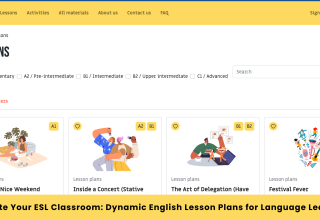Are you worried that your children spend all day in front of the television every summer? It’s usually easy to organize fun children’s activities or take your kids to a camp for the summer. However, this summer is slightly different. With a pandemic keeping everyone indoors, it can be hard to encourage productive activities.
Summer learning loss is a debated subject, but it’s always good—for both children and adults—to learn consistently. However, it’s harder to convince children to keep learning at home than it is to convince adults. So, to ensure your children continue to acquire new knowledge, you have to sneak a little education into their summer fun. Here’s how to help your child learn without them realizing it.
1. Make math fun
Children are more likely to want to learn if they see it as a fun activity. Try making their education a fun, engaging game instead of a chore. An easy way to make subjects like arithmetic less daunting is to get involved. Teach them the multiplication table as a song, or show them how to use a calculator for algebra problems. Search for tips and tricks online to find an easy way to learn algebra if your child is a beginner.
If you don’t have time to study with your children, hire a tutor. Several online tutoring services help make scary subjects like algebra and geometry accessible. When exploring tutoring options, be sure that you’re hiring a reputable tutor like Hello Thinkster. Their site has an online application to help children work on their math skills at home. An online study group can be the best place for your child to sharpen their algebra skills at home without feeling isolated.
2. Help them grow plants
Caring for plants can teach children so much about the natural world. Not only that, but they’ll also be able to learn the basics of how things grow as well. If you have a large outdoor space, grow a vegetable patch, or start a small herb garden. Teach your child how each vegetable or herb grows. Also, show them how to care for and water the plants and how much sunlight each one requires.
If you don’t have an outdoor space, try an indoor plant instead. Bonsai and money tree plants are an excellent way to start. A great indoor plant to help your children learn is the Fabian aralia plant or a Fabian stump. It’s a container plant that needs occasional watering and a sunny location. This tropical plant does grow quite large and may require fertilization after a few months. That being said, it’ll provide an easy way to teach your child how to be responsible and give them a closer look at how things grow.
3. Write a play together
Do you want your children to sharpen their writing and grammar skills? Engage them in a fun activity like writing a play or a short story. It’ll be a multimedia experience since you can also perform it after it’s written. You can encourage your child to read a dramatic work and discuss how it’s written. Then you can then help them make costumes, design a small set, and learn lines for their performance. With one fun activity, your child will learn several new skills.
4. Teach them with treats
Do your children love cookies, cakes, and all sorts of sweet treats? Baking is fun and can teach children a range of different skills. Ask them to help you make a fresh batch of cookies or a new dessert they want to try. Measuring the ingredients will teach them arithmetic, and following the recipe will help them read faster. If your children are old enough for food science, teach them how different ingredients react to create the tasty treats they enjoy.
5. Try building blocks
Are your children too small to learn arithmetic, help you cook, or care for an indoor plant? It doesn’t mean you can’t sneak some learning into their summer activities. Try something simple, like building blocks. This simple game can teach them everything from motor skills to problem-solving. If they’re already familiar with the designs, encourage your children to ignore instructions or pictures on the box. Attempting to build a new, original creation will teach them new skills and encourage creative thinking.











